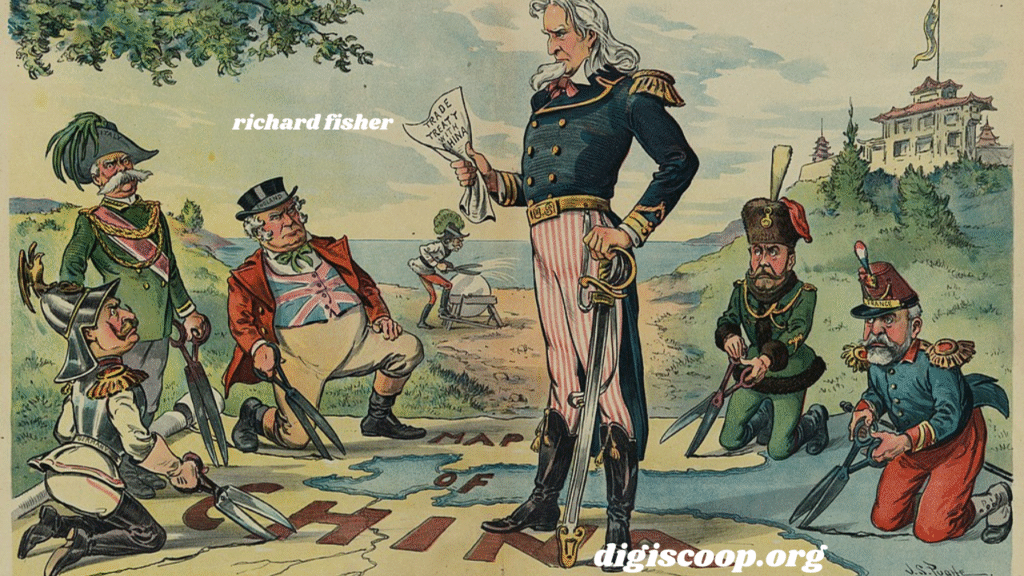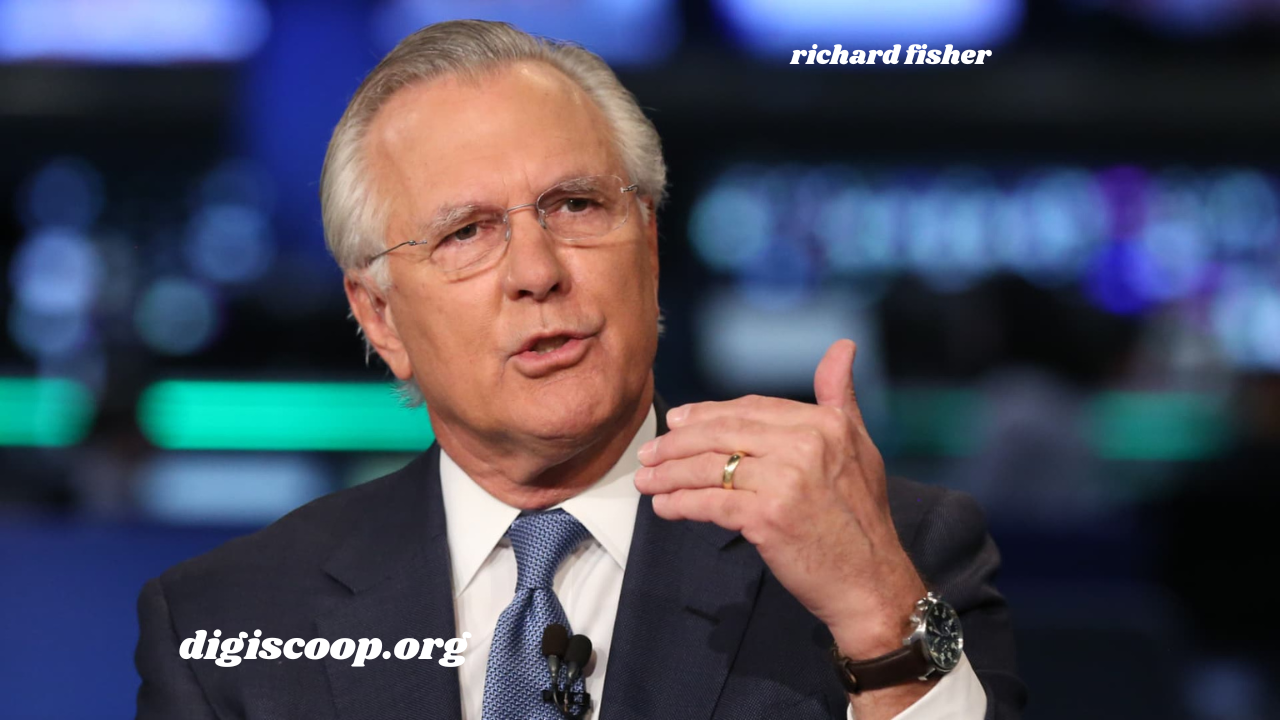Introduction: Who Is Richard Fisher, ??
Richard Fisher, ??, is a name that carries significant weight in both financial and political circles. Best known for his tenure as the President and CEO of the Federal Reserve Bank of Dallas, Fisher has worn many hats over the years—investor, economist, public servant, and international trade negotiator. But the question of “Richard Fisher, ??,” prompts deeper inquiry: Who is he really beyond his professional titles? This article explores the full journey of Richard Fisher, ??—from his multicultural upbringing to his impactful decisions in monetary policy.
Early Life and Educational Foundations

Richard Fisher was born in Los Angeles, California, in 1949. The enigmatic “??” in “Richard Fisher, ??” could well represent the complexities of his multicultural heritage and global outlook. Raised partly in Mexico, he became fluent in Spanish and developed a broad worldview early on—a trait that would later shape his career in international finance and diplomacy.
Fisher attended Harvard University, earning a degree in economics in 1971. Later, he received an MBA from Stanford University. He also studied Latin American politics at Oxford. These academic experiences not only provided him with a strong foundation in economics and policy but also broadened his geopolitical understanding—skills that proved crucial throughout his career.
Career Beginnings: A Foot in the Political Door

Before fully immersing himself in finance, Richard Fisher worked in public service. In the late 1970s, he served as an assistant to the U.S. Secretary of the Treasury under President Jimmy Carter. It was during this time that Fisher gained firsthand experience in fiscal policy, budget planning, and international trade relations.
While he eventually shifted toward the private sector, Fisher’s political grounding never left him. It prepared him for the highly visible and sometimes controversial roles he would later assume in government and finance.
Private Sector Success: Wall Street and Beyond

After his time in Washington, Richard Fisher built a successful career on Wall Street. He joined Brown Brothers Harriman & Co., a private investment bank, and gained deep insights into global markets. Later, he co-founded Fisher Capital Management and Fisher Ewing Partners, establishing himself as a capable and respected money manager.
His private sector experience gave him a practical perspective on how government policies affect businesses and markets—an understanding he later applied in his role at the Federal Reserve.
Return to Public Service: Trade Negotiator in the 1990s
During the Clinton Administration, Fisher returned to public service as the United States Trade Representative (USTR) Deputy. He was the chief negotiator for the U.S. on the North American Free Trade Agreement (NAFTA) and other major trade agreements. Here, “Richard Fisher, ??” becomes a representation of diplomatic finesse.
He navigated intense negotiations, built consensus across borders, and demonstrated that economics and diplomacy often go hand-in-hand. His ability to negotiate complex international deals marked him as a high-impact player in the global arena.
Federal Reserve Era: President of the Dallas Fed
In 2005, Richard Fisher was appointed President and CEO of the Federal Reserve Bank of Dallas, a position he held until 2015. This role would define a significant part of his legacy.
Fisher quickly gained a reputation for being outspoken, especially during the tumultuous years of the Great Recession and the subsequent economic recovery. A known inflation hawk, he often warned against excessive quantitative easing and voiced concerns about the long-term implications of prolonged low interest rates.
While many economists praised his vigilance, others felt his views were overly cautious. Yet, what set Fisher apart was his commitment to transparency and his ability to communicate complex monetary policy to the public with clarity and conviction.
Public Persona: Straight Talker with Depth
“Richard Fisher, ??” also points to the more personal, sometimes paradoxical, aspects of his character. He was known for being both blunt and highly intellectual. Whether delivering a speech in front of Wall Street executives or speaking to rural bankers in Texas, Fisher was clear, direct, and often memorable.
For example, he once described the U.S. economy as “driving a car with fogged-up windows” during uncertain times, a metaphor that resonated with both economists and the general public. His style helped make abstract monetary policy issues accessible, thus deepening public trust in the Federal Reserve System during times of economic instability.
Controversies and Bold Opinions
Richard Fisher wasn’t afraid to challenge popular opinion. During his tenure at the Fed, he frequently dissented from the majority view, particularly when he believed that loose monetary policy was overheating the market or sowing seeds for future inflation.
Some critics felt his dissent weakened unity within the Fed, while others applauded his integrity and willingness to stick to his convictions. Regardless, he never hesitated to voice his opinions, even when they were unpopular. “Richard Fisher, ??” in this context symbolizes courage and independent thought in a system that often values conformity.
Post-Federal Reserve Years: Continued Influence
After retiring from the Dallas Fed in 2015, Fisher continued to be an influential voice in finance and economics. He joined the boards of several major corporations and became a sought-after commentator on monetary policy.
Even in retirement, his commentary has been closely followed by market analysts and financial media outlets. His decades of experience—coupled with his sharp insights—ensure that his views still carry weight in shaping public and corporate perspectives on economic issues.
The Broader Impact: Leadership and Legacy
Richard Fisher’s impact goes beyond charts and interest rates. His multicultural background, intellectual versatility, and principled approach to policy made him a unique figure in both national and international economics.
He consistently advocated for fiscal responsibility, transparency, and disciplined policymaking. These values have influenced not just policy discussions, but also the next generation of economists and financial leaders.
Moreover, Fisher’s legacy is an example of how expertise across sectors—public service, private finance, and academia—can come together to serve the greater good.
Conclusion: Understanding Richard Fisher, ??
So, what does “Richard Fisher, ??” truly signify? It represents a multidimensional leader whose life bridges cultures, economies, and ideologies. From his roots in Mexico to his role at the highest levels of U.S. economic policy, Fisher’s journey has been defined by intellect, service, and conviction.
In a world of shifting economic paradigms and polarizing opinions, Richard Fisher remains a steady voice of reason and principle. Whether you agree or disagree with his views, there is no denying that Richard Fisher, ??, has made a lasting impact on modern economic thought—and that his legacy will continue to influence financial policy for years to come.
Also Read : HRWARE: Redefining Human Resource Management for the Modern Age







